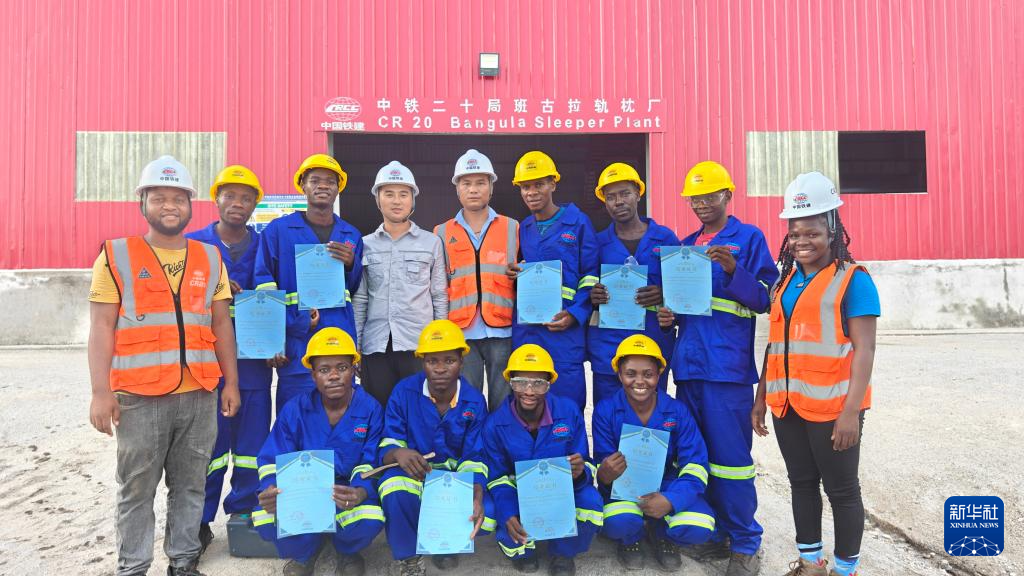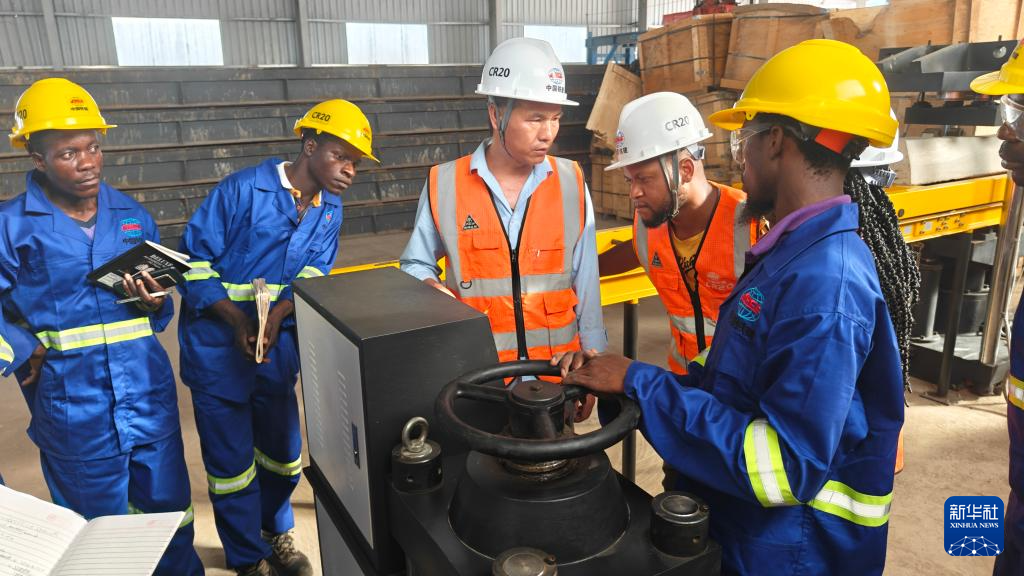Malawi has entered the rainy season in November, and the southern Ensanje region where the China Railway 20th Bureau Malawi Marka Bangura Railway (hereinafter referred to as the Maban Railway) project is located is located in a basin, with daytime temperatures reaching up to 40 degrees Celsius. Despite the hot weather, the enthusiasm of Chinese teachers and local students for teaching and learning in the project training classroom remained undiminished. The students listened attentively and took careful notes on how to use experimental instruments, how to detect bricks and blocks, and how to record data.
We are students of bricklaying technicians studying experimental testing techniques at the Maban Railway project. We are very grateful to China Railway 20th Bureau for giving us this learning opportunity. As the team leader, Ludis Mussobello, a lecturer at Tengani Community Technical College, took on the task of coordinating and planning this learning journey. She didn’t expect this Chinese company to approve their study application so quickly after seeing it.
 On November 8th, in Ensanje, Malawi, trainees from Tengani Community Technical College held their graduation certificates and took a group photo. Xinhua News Agency (provided by China Railway 20th Bureau)
On November 8th, in Ensanje, Malawi, trainees from Tengani Community Technical College held their graduation certificates and took a group photo. Xinhua News Agency (provided by China Railway 20th Bureau)
We were warmly welcomed, and China Railway 20th Bureau tailored a variety of training courses for us, including theoretical and practical training, and also arranged for Chinese experts to teach us, “said Mussobello.
The Maban Railway Project starts from Marka Station on the southern border of Malawi in the south and ends at Bangura Station in the north, with a total length of 72 kilometers. The project will upgrade and repair the existing line and officially start construction in January 2023. It is expected to be completed in October 2025. After the railway is completed, it will effectively connect the railway line from the northwest border of Malawi to the port of Beira in Mozambique, meeting the import and export of agricultural products and other resources, as well as the transportation needs of residents’ daily necessities along the line.
In order to ensure construction quality and build a high-quality railway that satisfies the public, the project attaches great importance to quality inspection work. Three laboratories and one concrete curing room were built, and various advanced testing instruments such as pressure testing machines and multifunctional presses were purchased from China. As the Chinese teacher for this teaching, Geng Penghui, the director of the project laboratory, has 18 years of experience in testing work. During his 5 years of work in Malawi, he trained nearly 30 testing professionals for the local area.
From the moment student Austin Torri stepped into the project laboratory, he was immediately attracted by the experimental instruments in front of him. When he followed other students to visit the largest rail sleeper factory in Malawi, which was built by the project, he was even more shocked by the fully automated mechanical operation of the production process. This is an unforgettable experience. We walked from the classroom to the construction site, learned knowledge that cannot be learned in books, witnessed advanced experimental equipment and industrial manufacturing processes. We are grateful to Chinese companies for bringing these to Malawi and willing to pass on their technology to us, “Tori said excitedly.
Maravetengni Community Technical College is a school established locally to cultivate technical talents, but its teaching staff is relatively weak. To improve teaching ability, the school seeks to cooperate with local enterprises. Teaching people how to fish is better than teaching them how to fish. Since China Railway 20th Bureau entered Malawi in 2018, it has always regarded the introduction of technology and the cultivation of local technical talents as important contents of fulfilling social responsibility. Over the past six years, it has employed more than 5000 local employees and trained nearly 1000 professional and technical talents in various fields such as testing, measurement, safety, and construction. This “school enterprise” cooperation further expands the channels for enterprises to strengthen technical training.
We hope to continue our cooperative relationship, seek cooperation opportunities, and provide more training for schools. We also hope that this’ school enterprise ‘cooperation can benefit more local schools and students, and contribute to the reserve of technical talents for infrastructure construction in Malawi, “said Xiong Guoming, the project leader, at the training graduation ceremony.
 On November 8th, trainees from Tengani Community Technical College attended training at the project site in Ensanje, Malawi. Xinhua News Agency (provided by China Railway 20th Bureau)
On November 8th, trainees from Tengani Community Technical College attended training at the project site in Ensanje, Malawi. Xinhua News Agency (provided by China Railway 20th Bureau)
